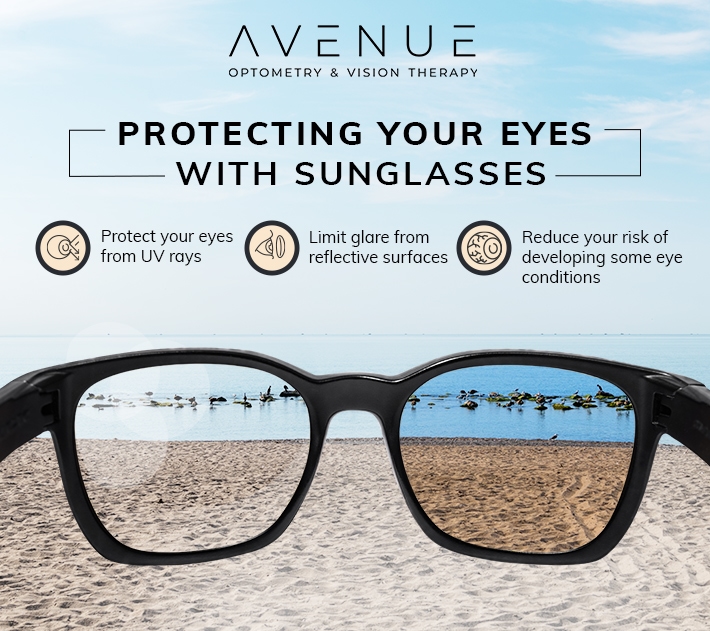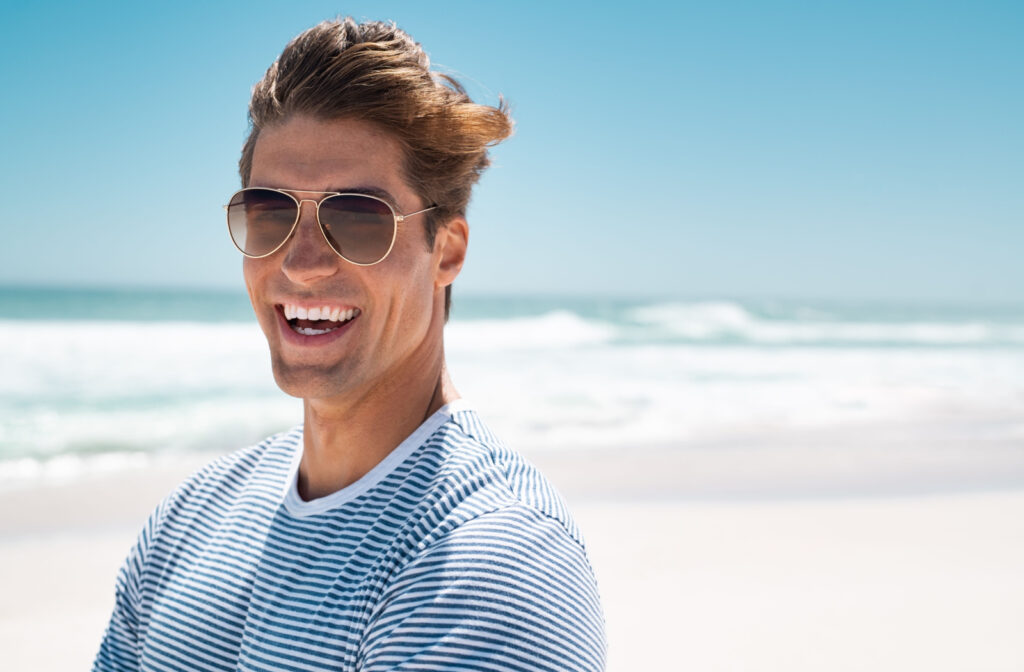When it comes to shielding your eyes, sunglasses are an essential item to have. Not only do they make you look stylish, but they can also provide various benefits to your eye health.
Sunglasses are an important tool for protecting your eyes from sun exposure, which can increase your risk of developing certain eye conditions.
Choosing the right sunglasses is crucial to help you get maximum protection without sacrificing style.
Benefits of Wearing Sunglasses
Sunglasses have several benefits, including reducing the amount of light that enters your eyes, preventing the damage caused by ultraviolet (UV) rays, and reducing glare that can impair your vision while driving or doing any other outdoor activity.
Protecting Against UV Rays
Exposure to UVA and UVB rays can contribute to eye diseases such as cataracts, macular degeneration, and photokeratitis (eye sunburn). Wearing sunglasses fitted with full UVA and UVB protection can safeguard your eyes against these harmful rays.
Reducing Glare
Polarized sunglasses can help reduce glare and eye strain while enhancing vision clarity. Glare can cause visual discomfort, squinting, headaches, and fatigue.
Polarized sunglasses have a special coating that blocks horizontal light, which causes glare. With this feature, polarized sunglasses can help make driving, water sports, and skiing more comfortable by reducing glare. They also enhance the colour and contrast of what you see.

Reducing Your Risk of Eye Diseases
Wearing sunglasses can also help reduce your risk of developing certain eye diseases, so it’s important to take steps to protect yourself when outdoors. UV rays can increase your risk of developing the following conditions:
Macular degeneration: Macular degeneration is an eye condition that can lead to vision loss and impair your ability to perform daily tasks. Wearing sunglasses that block UV rays can reduce the risk of developing macular degeneration.
Cataracts: With cataracts, the eye’s clear lens becomes cloudy, often leading to a decrease in vision. Prolonged exposure to UV rays can cause cataracts.
Photokeratitis: Photokeratitis is like a sunburn in your eyes. UV rays can damage the cornea and conjunctiva, causing discomfort, headaches, light sensitivity, and temporary vision loss.
Solar retinopathy: Solar retinopathy can cause permanent vision loss by damaging the retina, which transmits images to the brain. It can occur due to sun-gazing or watching an eclipse without proper eye protection.
Pterygium: Pterygium is a growth of pink, fleshy tissue on the white part of the eye, often caused by exposure to UV rays and dry conditions.
Tips for Choosing Sunglasses
Not all sunglasses are the same, and choosing the right pair can make a significant difference in preserving your vision and preventing eye damage.
Whether planning a beach vacation or simply driving to work on a bright sunny day, these tips can help you choose the right pair of shades that look good and provide adequate protection for your eyes.
UV Protection
A critical factor to consider when selecting sunglasses is UV protection. Look for sunglasses that offer 100% protection against UVA and UVB rays. The label on the sunglasses should clearly state UV protection—if it doesn’t, consider choosing a different pair.
Close-Fitting Sunglasses
You must choose sunglasses that fit your face well and cover your eyes from all angles. Sunglasses with close-fitting wrap-around designs are ideal as they block harmful UV rays and help prevent dust, debris, and other pollutants from entering your eyes.
Dark Lenses
Dark lenses can help reduce eye strain and prevent squinting, which can lead to headaches and eye fatigue. They may provide an extra level of comfort in bright sunlight, making them ideal for outdoor activities like hiking and fishing.
Polarized Lenses
Polarized lenses can help reduce glare by blocking horizontal light waves, which cause reflections from surfaces such as water and metal. Polarized sunglasses are particularly useful for people who spend long hours near reflective surfaces or water bodies.
Scratch-Resistant Coatings
Scratches on lenses can obstruct your vision and decrease their effectiveness in blocking UV rays. To avoid scratches, look for sunglasses with scratch-resistant coatings that protect against wear and tear.
Check for Distortion
Distorted lenses can cause eye strain, headaches, and even nausea. When trying on sunglasses, check for distortion by looking at straight lines or grids. If the lines appear bent or wavy, the lenses may cause distortion and can strain your eyes.
Protect Your Vision In Style
Protecting your eyes from the sun is vital for maintaining your eye health. Wearing sunglasses is the easiest and most effective way to block UV rays and protect your eyes from damage. Plus, sunglasses are available in many designs, colours, and shapes, so you can use them to express your unique style.Visit Avenue Optometry & Vision Therapy today to browse our selection of designer sunglasses. Our knowledgeable team can help you find a pair that protects your eyes from the sun, suits your lifestyle, and looks great.




